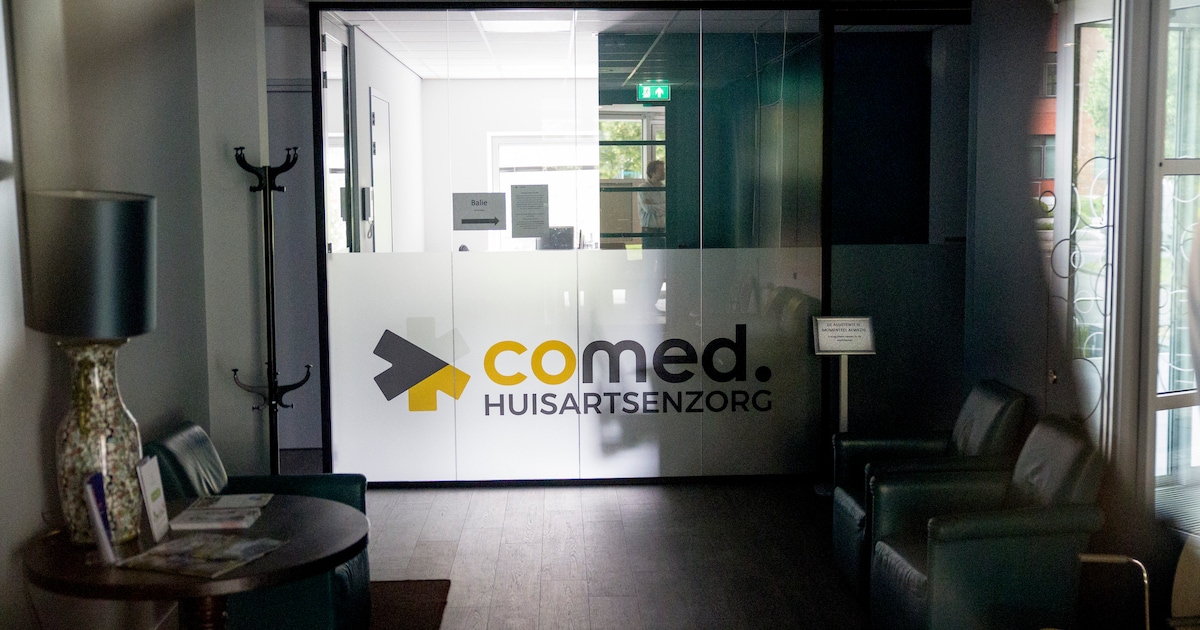
If there is one word that resonates throughout all reactions to the inevitable end of GP retail chain Co-Med it is a widely shared sigh: finally.
Finally, health insurers suspend their payments and contracts. Finally someone dares to intervene. And thus finally ends the company that has been wasting for years what should be good care from GPs: GPs present who know their patients, who can reassure them if nothing happens and who intervene immediately in case of emergency .
Because the complaints about Co-Med are as old as the company itself, founded in 2020. They barely answer the phone, nor the emergency line, an appointment with the doctor is as difficult to get as a ticket to Taylor Swift, the offices are closed from one day to the next, as happened in Reusel, Brabant, North Holland Anna Pauwlona, in The Hague, in Waalwijk.
So why did it take so long when it was clear that the care at Co-Med was not in order? In fact, patients were even at risk, as the article shows. by Volkskrant posted last week?
Lawsuit against IGJ
Much of the delay is due to a lawsuit Co-Med brought against the Inspectorate of Health and Youth (IGJ) last summer, which it notably won. As early as June 2023, the IGJ was convinced that patient safety in Co-Med offices was very poor. The regulator wanted to impose an “instruction” on Co-Med; an obligation that the company had to comply with all guidelines for general practitioners within one week.
The proposed intervention was harsh, says health economist Xander Koolman. “It seemed like the intent was to kill Co-Med.”
The attempt failed; The trial judge temporarily dismissed the investigation. The inspection did not sufficiently take into account the shortage of general practitioners, the guidelines for general practitioners were not strict enough and the one-week deadline was unreasonable.
Protected against arbitrariness
In the Netherlands, says Koolman, companies are excellently protected against government arbitrariness, and that is a big advantage. ‘But this enormous protection also applies to companies that receive public money for healthcare. “This makes it difficult to adopt drastic measures.” Maybe too difficult. Koolman: “In my opinion, the value of the patient’s interests in this case should have prevailed over the protection of the employer.” Only in April this year, after a lengthy objection procedure and a new court ruling, was the IGJ allowed to impose the designation.
Insurers had also been working on Co-Med for months, but they could not break the contract with the entire chain at once, says Rogier van der Hooft, CZ’s healthcare director. CZ enters into contracts with individual practices, not the organization as a whole. ‘During the past year we analyzed what we could improve in each practice. And a lot of things have already happened there.’ For example, interventions have been carried out in several Co-Med clinics, for example in Waalwijk, The Hague and Oirschot. “But we saw that in other practices everything was going well,” says Van der Hooft.
Only in the last two months, he says, “we entered a phase where care was not structurally good.” Only when Co-Med “demonstrably” failed, “the insurers were able to take on such a huge liability together, an exceptional combination.”
Dependent
A complicating factor: the regulator and health insurers relied heavily on information provided by Co-Med itself. The agencies are only partially equipped to find the truth and have a limited number of employees. (Koolman: ‘before you know it you know everyone who works at the IGJ’). But Co-Med met “the limit of what was reliable,” Van der Hooft says. Or, in the words of other IGJ and insurance sources, “management was particularly good at lying.”
At the same time, there was great fear of new legal proceedings. An insufficiently reasoned decision could lead to both the demise of Co-Med and a claim worth millions.
And then there was the duty of care of health insurers. The closure of Co-Med also meant health insurers had to provide GP accommodation for tens of thousands of patients. Health insurers were only able to collaborate in this regard after the ministry in April commissioned the Dutch health authority to prepare scenarios for a possible bankruptcy of Co-Med.
Damage to health
This does not change the fact that the long procedures and endless consultations between authorities have undoubtedly caused damage to the health of patients. Even after last Saturday’s publication, De Volkskrant continued to receive reports of patients not receiving the care they should have received due to Co-Med’s mismanagement.
Maybe that wouldn’t have been necessary. When a general practice of another commercial chain in Pijnacker was unable to provide emergency care, the health insurer DSW (the largest insurer only in the Delft region) immediately suspended payments. The decision was a result of the idea that “we don’t want commercial GP companies in the region,” says president Aad de Groot.
The insurer has created, together with other actors in the health sector, a foundation that helps young general practitioners to create their own practice; purchasing properties and renting them at a favorable price, and providing training and advice to beginning homeowners.
“Many insurance companies still see the advantages of innovative retail chains as a solution to the shortage of GPs,” says De Groot. Unjustified, he thinks, because if the goal of a GP company is to make a profit, this affects the independence of GPs. ‘It is precisely thanks to this independence that GPs are able to establish a relationship with the patient, whatever form it takes. This is important because the chain of care begins with the primary care physician. “If this is not organized properly, the rest of the healthcare system will be affected.”





